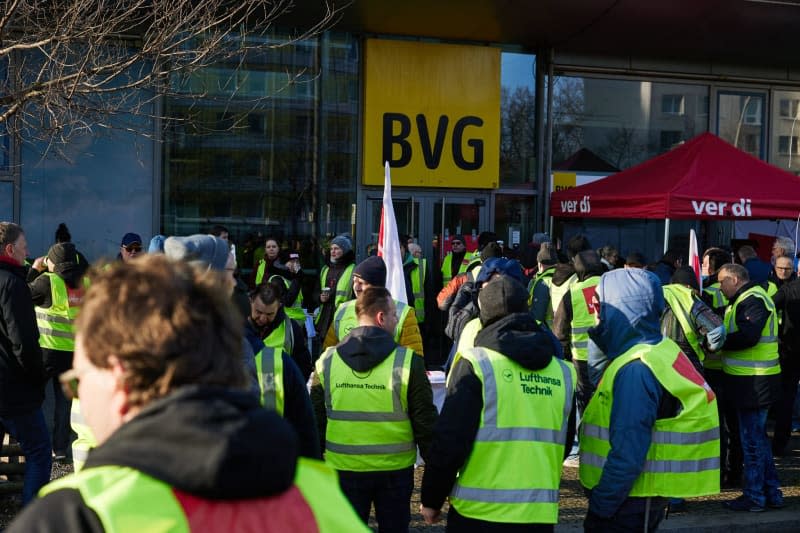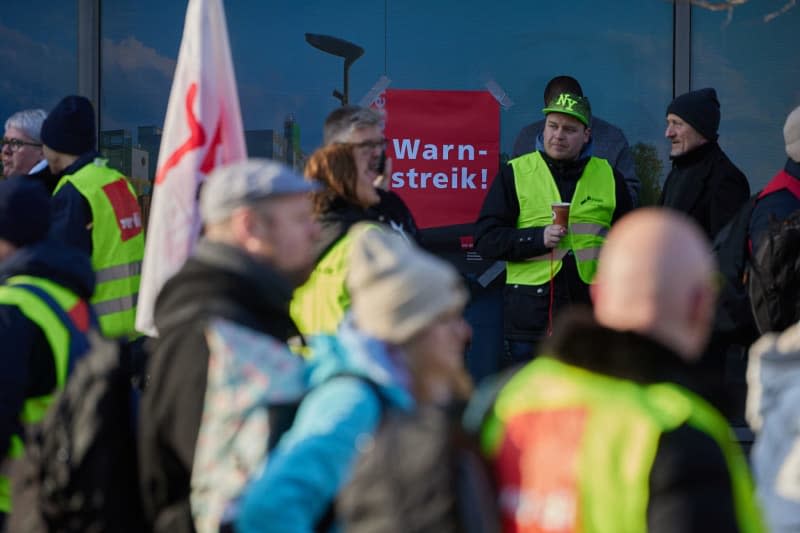German public transport hit by two-day strike, crippling networks

Public transport ground to a halt in much of Germany on Thursday as a two-day warning strike began in several federal states.
Buses, trams and subways were largely at a standstill in many places, though suburban S-Bahn rail lines operated by the national rail network Deutsche Bahn were still running.
Municipal and local public transport network operators warned passengers to expect significant disruptions, after the Verdi union had called for two-days of warning strikes Thursday and Friday.
Transport is affected in the states of Berlin, Hamburg, Lower Saxony, Saxony-Anhalt, North Rhine-Westphalia and Rhineland-Palatinate. Rallies were planned in several cities on Thursday. A two-day warning strike continued in Thuringia on Thursday.
The background to the strikes are differing visions for collective bargaining agreements for employees, which focus on better working conditions and relief for staff. The union called the industrial action in a bid to get a better deal for workers.
In a different labour dispute, wage negotiations with the German Train Drivers' Union (GDL) failed on Thursday, Germany's national railway operator Deutsche Bahn said.
The GDL has broken off negotiations, Deutsche Bahn announced, confirming an earlier report in the tabloid Bild newspaper. The GDL was initially unavailable for comment.
"Despite far-reaching concessions by Deutsche Bahn and despite the deployment of two experienced moderators, the German Train Drivers' Union [GDL] broke off the confidential wage negotiations with Deutsche Bahn early today," Deutsche Bahn said.
The talks failed again this time due to the GDL's core demand for a reduction in weekly working hours for shift workers from 38 to 35 hours. In addition, the union led by Claus Weselsky also wants to negotiate collective agreements for parts of the infrastructure. The rail operator has so far rejected both points.
Collective bargaining at Deutsche Bahn began at the beginning of November. After the second round of talks, Weselsky declared the negotiations to have failed and initiated a ballot.
The GDL paralysed large parts of rail traffic in Germany a total of four times with two strikes and two longer strikes. Long-distance, regional and freight transport came to a standstill for days.
The GDL ended the most recent industrial action prematurely at the end of January and surprisingly returned to the negotiating table. Since then, talks have been held behind closed doors.
Nothing was made public during this time, neither the progress of the talks nor the mood between the two sides. Negotiations took place in Berlin.
Those talks were moderated by former federal minister of the interior Thomas de Maizière and Daniel Günther, the premier of the state of Schleswig-Holstein.
"[Deutsche Bahn] is now assessing the current situation and examining the next steps," it said.
Fresh industrial action by the GDL, which would mostly affect long-distance and regional trains, could kick off as soon as next week. The union has called a press conference for Monday at which it wants to provide information about the current state of affairs and outline how it plans to proceed.


